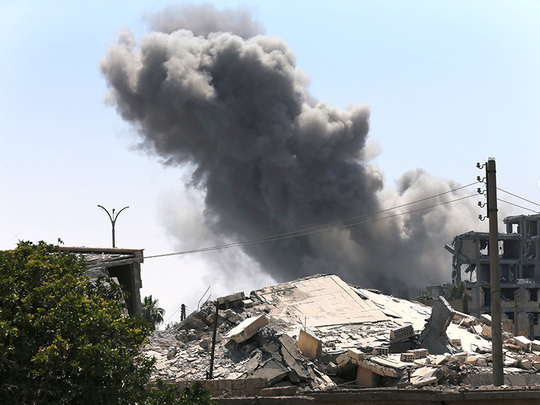
Istanbul: Concerns are mounting over the civilian cost of the US-led coalition’s campaign to reclaim Daesh’s de facto capital of Raqqa, with reports of air strikes killing and wounding hundreds of Syrians. The reports, which cannot be definitively confirmed but are considered reliable by UN officials, raise questions about the US commitment to protect civilians in the battle amid the reported loosening of the rules of engagement under President Donald Trump.
A family of seven civilians was reportedly killed when air strikes hit a residential area of the city on 4 July, while on 16 and 17 July 36 civilians were reportedly killed in two separate coalition air strikes. Sixty-two people were reportedly killed in air strikes on 26 July in residential areas, while 15 members of the same family, including children, were killed in the Shammas district two days later.
On 1 August, activists said around 50 people, mostly women and children, were killed in the Bousraya neighbourhood after a coalition bomb struck a residential building. On the same day, 11 members of the same family were reportedly killed in a coalition bombing on their home in the Tawassuiya neighbourhood, while another 20 were reportedly killed two days later in Al Badou and Al Takana neighbourhoods. The Syrian Observatory for Human Rights, a war monitoring organisation, estimates that 523 civilians have died in two months of fighting. In its monthly casualty report late last week, the coalition said that it “takes all reports of civilian casualties seriously” but that the total number of civilian deaths it deemed credible since the launch of its operations in August 2014 stood at 151, after nearly 23,000 air strikes.
Nadim Houry, the director of the terrorism and counter-terrorism programme at Human Rights Watch, recently visited Raqqa province said an investigation into the strikes is essential.
“There are definitely grounds for caution and concern and the need to beef up the process by which targets are selected.”












